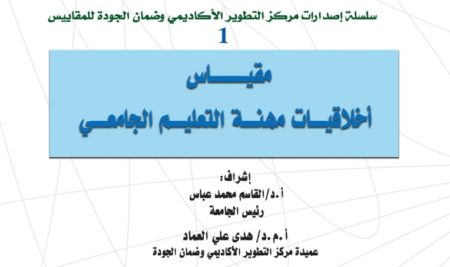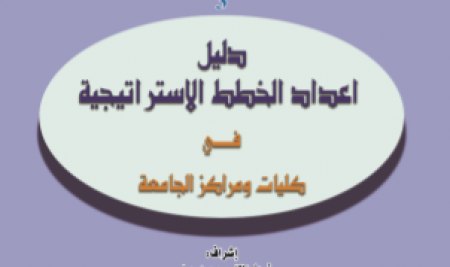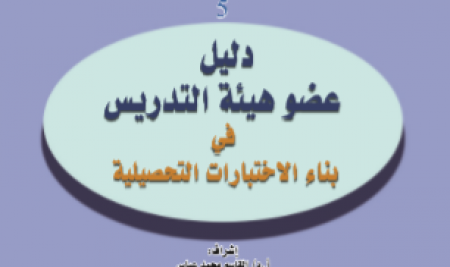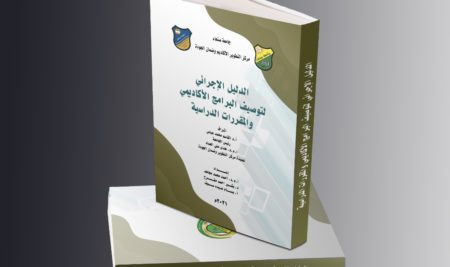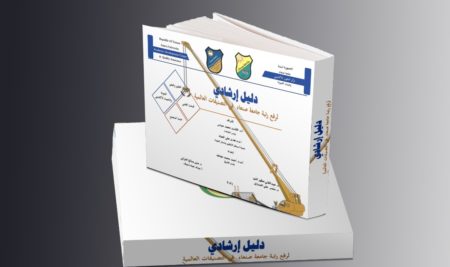
To be a premier center and the foremost house of expertise with a leading role locally and regionally in the field of development and quality assurance of higher education

The Center seeks to develop academic and institutional performance and ensure quality at Sana'a University to assist its various colleges and centers in achieving academic, administrative, research, and service excellence to maintain the University’s leading position.

The center is holding a workshop to approve the descriptions.
Academic Development and Quality Assurance Center
Our Vision
To be a premier center and the foremost house of expertise with a leading role locally and regionally in the field of development and quality assurance of higher education
Our Mission
The Center seeks to develop academic and institutional performance and ensure quality at Sana’a University to assist its various colleges and centers in achieving academic, administrative, research, and service excellence to maintain the University’s leading position.
Our Values
- Transparency
- Partnership
- Objectivity
- Responsibility
- Integrity
Our Objectives
- Building and strengthening institutional frameworks to establish a quality system at the university.
- Promoting a culture of quality and accreditation among all university affiliates.
- Activating quality systems at the university and qualifying its scientific and research centers for academic accreditation.
- Developing the capabilities of faculty members, technicians, and administrative staff affiliated with the university.
- Creating an information system for quality and accreditation at the university level and quality units in colleges as well as scientific and research centers.
- Contributing to the development of financial resources necessary for academic development, quality assurance, and academic accreditation.
- Monitoring and evaluating academic and administrative performance and providing feedback.
- Keeping pace with modern developments to enhance the university’s global ranking.
About Center
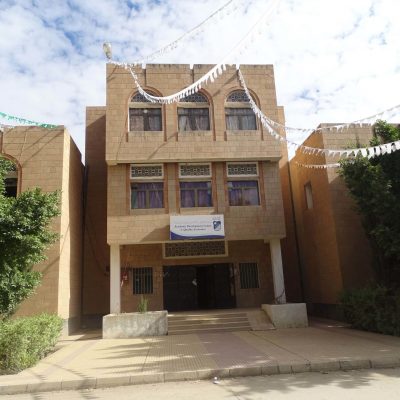
Academic Development and Quality Assurance Center
The Center for Higher Education Development was established by the University Rector’s Resolution No. (400) of 2006; then, the Center’s name was amended to the Academic Development and Quality Assurance Center by the University Rector’s Resolution No. (844) of 2016. This reflects the concern of the University leadership about the development process as the Center is one of the most important scientific and research centers specialized in the preparation for achieving quality which would lead to obtaining academic accreditation.
The Center includes academic, administrative, and research personnel. It consists of suitable training rooms and a library with various scientific and training references (in both soft and hard copies) and documents of previous events, including documents related to the amendment of the Center’s old name into the new officially approved name (Academic Development and Quality Assurance Center). This also reflects the University leadership’s direction towards focusing on the development process, as the Center is considered one of the most important scientific and research centers specialized in the preparation for achieving quality and subsequently obtaining academic accreditation.
Academic Development and Quality Assurance Center
Center Dean
Dean's Message
Since its establishment in 2006 by the University Rector’s Resolution No. (400) for the year 2006, the ADQAC has been dedicated to fulfilling its mission of serving, improving, and developing higher education. It aims to promote quality culture among university affiliates and conduct developmental programs and training courses for faculty members, administrators, and technicians to enhance the quality of higher education outputs, in order to meet the needs of society and provide the labor market with highly qualified outputs with specific specialties dictated by strategic motives, thus saving the cost of recruiting foreign expertise.
The University presidency, represented by its Rector, Prof. Al-Qassem Mohammed Abass, assigns the Academic Development and Quality Assurance Center (ADQAC) the primary and active role in setting plans, strategies, and implementing activities for the university that contribute to the quality, improvement, and development of the university and all its facilities through quality units. By this, the University seeks to keep pace with global developments to ensure quality and to enhance academic performance so that the University can compete globally, face challenges, achieve self-realization, and thus obtain international academic accreditation among prestigious universities.
Since mid-2019, the ADQAC has transformed into a collective workshop, functioning as a determined beehive, focused on the preparation of specifications of academic programs and study courses and conducting self-assessment of these programs. A clear work plan was set, guided by a strategic vision, and encouraged by the university leadership to complete program and course specifications and conduct self-assessment, paving the way for achieving national and regional institutional accreditation. By the end of 2019, the specification workshops were held in all faculties, and then the process of preparing specifications for programs and courses progressed to make 2020 a year of exceptional curriculum specification. The University has completed the process of specification for 120 academic programs and 6,552 courses in 19 faculties, in addition to 10 programs, and 100 courses in 14 university centers. In early 2021, a comprehensive plan was drawn up to conduct a self-assessment of academic programs in various faculties in the university. Workshops for quality assessment were held in all faculties, starting the self-assessment process for academic programs in 2021, a year of outstanding self-assessment. Despite the significant achievements in the specification and evaluation process, the Center’s work has not been limited to that. It has also issued more than (81) publications covering all the University’s educational needs, including guides, standards, instructions, etc. Additionally, a website has been created for the Center on the Internet, showing the academic productivity of researchers through rigorous scientific research published locally, regionally, and internationally. These efforts have resulted in the publication of more than fifteen thousand (15,000) research papers in all academic disciplines. Some have entered international competitions and won awards, all contributing to the goal of ensuring quality and academic accreditation.
Amidst the relentless pursuit of obtaining national accreditation, the Center has fulfilled the requirements for national accreditation in both programmatic and institutional qualities. We have obtained programmatic accreditation for the faculties of Medicine and Dentistry. Besides, we strive to complete the accreditation process for the remaining faculties within the next three months. Additionally, we are diligently working towards achieving international accreditation, starting with the Faculty of Medicine. Thanks to its educational structure, infrastructure, and concrete development steps, the University has made significant progress globally over the past four years, advancing more than two thousand (2000) ranks globally. Despite the blockade, aggression, and income disruption, Sana’a University continues to have a leading position locally and excel in improvement and development both regionally and internationally.
Dean of the Center
Prof.Dr : Huda Ali Al-Emad
Units of the Academic Development Center
Latest News
حصر إصدارات مركز التطوير وضمان الجودة (انجليزي)
حصر برامج جامعة صنعاء لجميع الكليات (انجليزي)
Academic Development and Quality Assurance Center
Activities & Events






